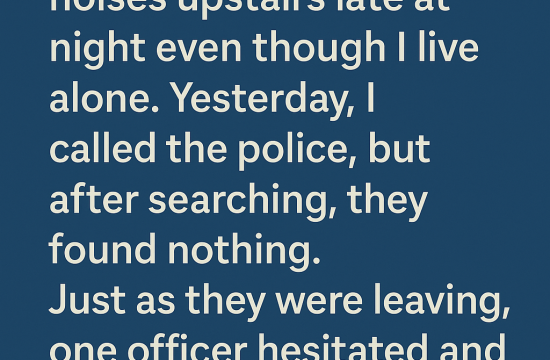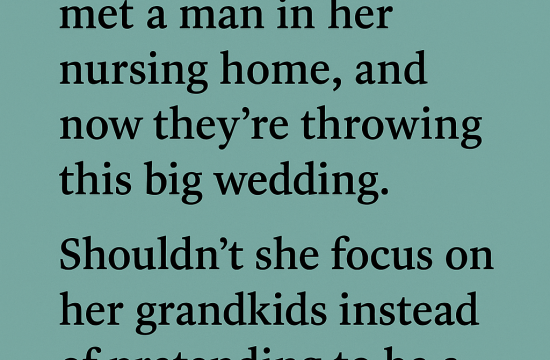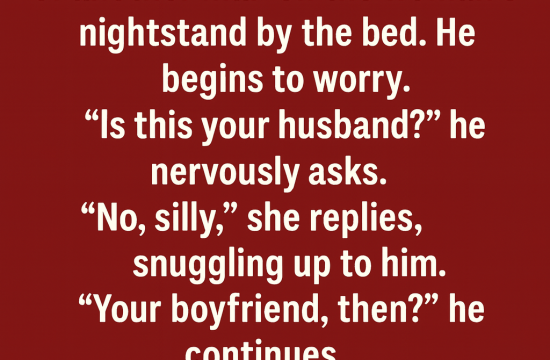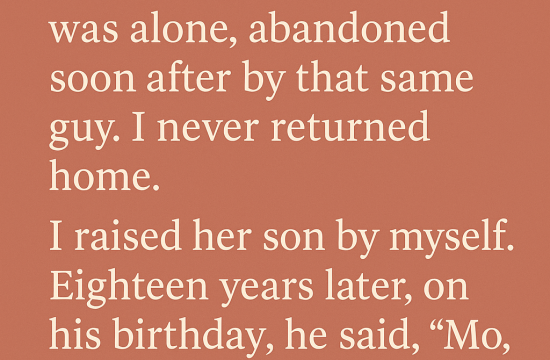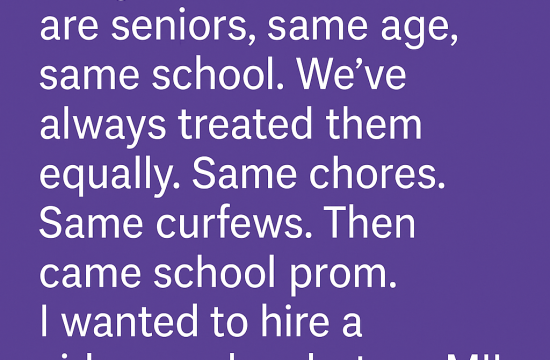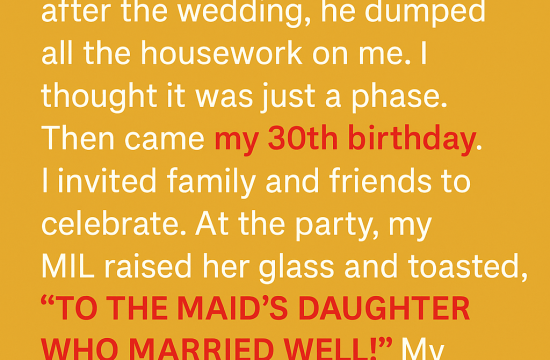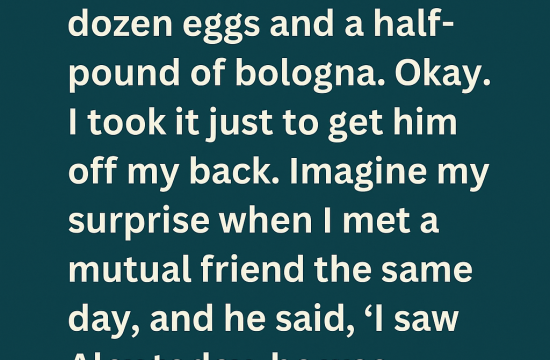I raised my son by myself and gave him my all—even my retirement fund. But a simple toy from my grandson uncovered the devastating reality of just how little that meant to the boy I brought into this world. If you’ve ever sacrificed for the ones you love, this story is for you.
You pour your life into people, convinced that love alone will make them love you back. But sometimes, that love just makes it easier for them to take advantage of you.
I’m Annie. I’m 60. And I’ve lived my whole life with one core belief: family first.
My husband passed away when Thomas, our only son, was just seven. I remember his little hand clinging to mine at the funeral, his tears soaking into my dress. From that moment on, I swore he would never go without love, stability, or comfort.
So I worked myself to the bone. I scrubbed toilets in office buildings before dawn, waited tables through aching double shifts, and picked up every odd job I could find. Every cent I earned went into giving Thomas the life I believed he deserved. I never remarried, never traveled, never thought about myself—because Thomas was my world.
Now, decades later, I have a four-year-old grandson named Max. He has the fluffiest curls and a gravelly little laugh that lights up even my darkest days. Just last week, he toddled over with one of his plastic walkie-talkies, his hands sticky from snacks.
“Grandma Annie, this is for you!”
I laughed, bending down to kiss his cheek. “And what’s this for, darling?”
“So we can talk at night! Just push the button and say my name!”
I clipped it to my apron and smiled, my heart melting. “I love it, sweetie.”
He clung to my legs like a koala. From the other side of the wall, I heard his mother, Lila, calling him. You see, we live next door to each other at Skyridge Apartments—same corridor, same squeaky boards.
I helped them buy that place five years ago, when Lila was pregnant. They looked at me with teary smiles and said, “So Max can grow up close to his grandma.”
I believed them. I emptied out my savings—$40,000 I had set aside for retirement. I told myself it was worth it if it meant being near my son and his future family.
But that night, long after Max had gone to bed, I sat at the kitchen table with the little walkie-talkie he had given me. I pressed the button softly, whispering his name, just to see if it worked.
And that’s when I heard it.
Not Max’s laugh. Not his little voice.
But my son’s. Thomas’s voice, carrying clearly through the toy speaker, from the other side of the wall.
Only he wasn’t talking to Max.
He was talking to Lila.
His words cut into me sharper than any knife.
“I don’t know how much longer I can keep giving her money, Lila. She’s draining me. I told you letting her live next door would be a mistake. She’s always around. Always needy. I wish she’d just… stop depending on me.”
Lila sighed. “Well, she gave us the down payment. We had to put up with her somehow. Just be patient. When she’s gone, the apartment will be ours anyway.”
My blood turned cold.
I sat frozen, clutching the toy walkie-talkie, my heart pounding so hard I thought it might burst. My own son—the boy I sacrificed everything for—saw me not as a mother, but as a burden. My gift, my love, my life’s work—reduced to an inconvenience.
That night, I cried harder than I had in years. Not for the money. Not for the apartment. But for the shattering truth that love, no matter how fierce, cannot force someone to value you.
The next morning, Max ran into my kitchen with his bedhead curls and sparkling eyes, chattering about pancakes. I hugged him tighter than ever, inhaling his sweet innocence.
Because while my son had forgotten the meaning of family, my grandson—without even knowing it—had reminded me of it.
Family isn’t about what you give or how much you sacrifice. It’s about who holds your hand when you have nothing left to give.
And for me, that’s Max.




